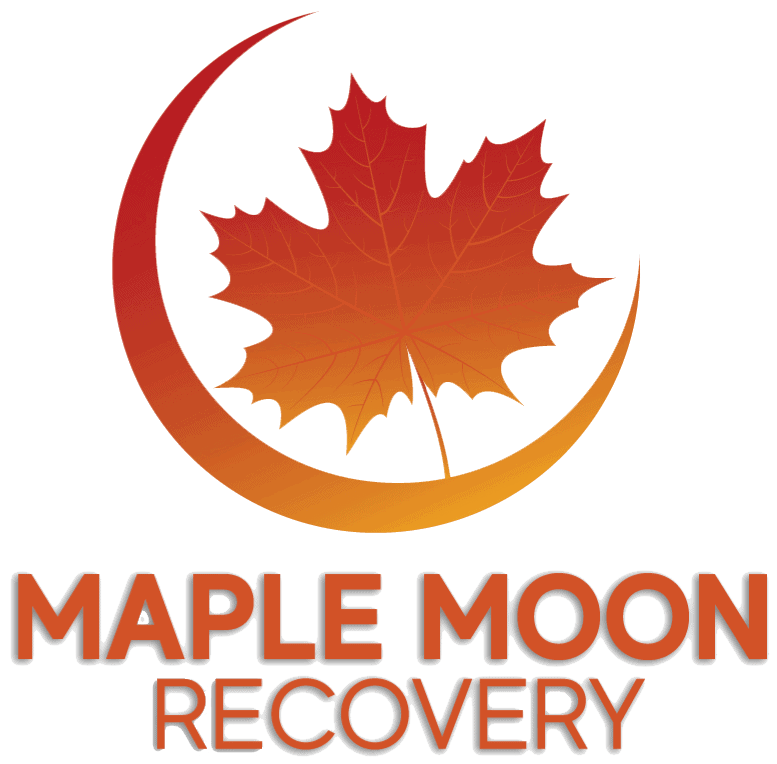In our experience, there are three times families have to face the challenges of excuses that addicts use to avoid getting help. The first one is before they are in treatment and using drugs and alcohol. The second is when they are in treatment and want to leave. The third is when a person who has been clean, sober, or abstinent for some time starts heading for a relapse. Interestingly enough, the excuses addicts use to avoid getting help are almost identical to those used in the other two scenarios.What this tells us is what we already knew about addiction. The problem is not the drugs or alcohol; the problem is the behaviors. An addict can make just as many excuses to avoid getting help as they can to avoid staying in treatment or justifying a relapse. It doesn’t take an addict to be under the influence of drugs or alcohol to be reckless in their perception and behavior. Although we will be mainly focusing on excuses for not going to treatment, the information here can be helpful for any family member regardless of where the addict is at in their stage of recovery.
EXCUSES ADDICTS USE FOR NOT GOING TO TREATMENT
As interventionists and addiction professionals, we have heard every excuse possible for someone to refuse help for their addiction. Some are valid excuses, but most are terrible when you break them down and challenge substance users and their families. If you pay attention to the words from the addict and you just let them talk, they will keep backing themselves into a corner. An emotionally connected family member may not be able to see this as clearly as a trained professional interventionist or addiction specialist. What we look for are called discrepancies. Discrepancies in therapy are when the substance user says one thing and does another. Saying they can quit whenever they want and don’t quit while their problems pile up is a discrepancy. It is a discrepancy when the addict states they don’t want to be away from their kids when they are in treatment, while they have been emotionally absent, and their kids haven’t already been a priority. Other examples include prioritizing your job over receiving medical care and spending your or others’ money on drugs and alcohol while complaining about having to spend money on treatment.
Excuses do not just come from the addict either. They come from family just as much. Both family and addicts are known to kick the can for maladaptive reasons. An addict comes up with excuses to avoid discomfort and still uses drugs or alcohol. A family kicks the can with excuses because they are selfish. Families are more worried about what will happen to themselves if their loved one goes to treatment than with the addict getting better. Families will read this and get angry, and it’s still true. Families and addicts may be fearful of the current situation, and the greater fear is the unknown. Both addicts and families use excuses for not going to treatment run parallel. Both receive some form of benefit by not doing an intervention or going to treatment. The unhealthy family dynamic, including the addict, fights to stay sick and maintain the status quo.

IE. “I CAN QUIT WHENEVER I WANT”
If addicts had a choice as simple as quitting whenever they wanted, then we wouldn’t need treatment centers, addiction professionals, hospitals, detoxes, police officers, and prisons as much as we do. Those few people can just stop on their own when consequences begin. Most substance users diagnosed as moderate or severe cannot stop solely on willpower, fear, mild consequences, and self-knowledge. The other concern is if the addict can quit whenever they want, why do most of them need their families and the support of others to help them with their addiction and lifestyle choices? If it were that simple, then they should do that; just quit. The family could and should try letting them manage their addiction independently in and of themselves on their resources to test this theory.
Saying they can quit whenever they want sells the family false hope that they may actually do that one day. The problem is, why families are waiting for this to happen, they are almost always sinking on the ship with the addict. If the addict can quit whenever they want, why are they still using drugs or alcohol as things worsen? For an addict to quit, the consequences have to become greater than drug and alcohol use benefits. Until the addict sees a greater need for change than a greater need for staying the same, they will continue to use drugs and alcohol.
“I’LL GET FIRED”
Worrying about the job and stating they will just get fired is one of the most common excuses at an intervention not to accept help. Addicts and alcoholics use their job to justify that they are not as bad as “those junkies and drunks who do not work.” They wear their job as a badge of honor as if they don’t have a problem. A couple of things to consider:
- First off, their boss or supervisor already knows. Almost every alcoholic, addict, and family doesn’t believe this, but the employer is already aware.
- Another distorted belief by the addict is they believe they are not replaceable. Their ego allows them to think that if they are not there, the place could not possibly carry on without them.
The true feelings that lie inside the addict are the opposite: They are afraid that if they go to treatment, their employment will function just fine without them, and it will be recognized that they are replaceable. At the same time, the family of the addict thinks the job is the only thing holding them together in one piece:
“If they lose that job, they will go downhill.”
The reality is that fearing they will get fired is an excuse with many layers that have little to nothing to do with the actual job itself. It is the justification it brings, along with the fear of being exposed that they are not as important as they think they are. Think about what a huge discrepancy this is. If they are as irreplaceable as they think they are and are loved and respected by their employer, why would they get fired if they left for treatment? When you look at it from this perspective, the fear of getting fired if you leave for treatment could be considered an oxymoron.
“IT’S TOO EXPENSIVE” ETC.
The cost of paying the deductible to go to treatment is similar to paying the deductible for other health care concerns. If someone is uninsured, treatment can cost money, and that is understood. The addict has no problem spending their money or the family’s money on drugs or alcohol and other means of support. To say that treatment is too expensive is saying that spending money on getting better is not as important as spending my money or your money on drugs, alcohol, and a destructive lifestyle.
During an intervention, the addict almost always tries to flip the script and say that the treatment center or the interventionist is only in it for the money. Any more than their drug dealer or the liquor store owner? The addict has no problem spending your money on themselves, yet has a problem when the money will be reallocated to treatment centers and addiction professionals. Saying it is too expensive is not even a good excuse. It screams discrepancy and is just a way for the addict to act as if they care about whether or not the family has to spend their hard-earned money.

“ADDITIONAL EXCUSES”
The excuses listed above are common, and there is not enough time to list every reason an addict can make and the ones we have heard.
There are three different categories for excuse-making:
- Excuses for Not Getting Help During the Intervention Process
- I don’t want my family paying for treatment – They have no problem accepting money or spending money of their own on drugs and alcohol.
- You went about this all wrong – They often state,
“If you had just come and talked to me, I would have gone to treatment. Now that you pulled this intervention, I am not going anywhere.”
- I can’t leave my children – Most people are not involved or emotionally connected to their children when using drugs or alcohol. Even if they are, the children can sense something is wrong, and it will have an emotional impact on them later in life. The longer they are under the influence and around their children, the more damage this will cause them.
- I can’t leave my pets – A responsible family member can care for the animals why they are in treatment.
- I will not go to inpatient treatment – There is almost always a negotiation for a lower level of care than needed. I will do outpatient, Suboxone, Methadone, see a local therapist or counselor, attend meetings, etc.
- Events Coming Up – As if their presence at the event under the influence of drugs or alcohol is a good idea. Besides, the event is not more important than their life. Putting the event as a priority is a very selfish act. It is the addict saying the event needs me more than I need the event. There is also no regard to how being at the event will affect those who did not want them to attend anyway.
- I will not go far away for treatment – Many addicts suddenly fear flying when we intervene. Flying and being away from home is a real fear; we understand that. What we do know is that if the only place to obtain their drug of choice were somewhere that required an airplane to get there, they would have no problem taking off and going.
- I am only going for 30 days or less – The addict and their family are the two least qualified people to make this decision. The addict’s treatment team will make this determination based on an initial and ongoing assessment.
- Excuses for Leaving Treatment Against Medical Advice (AMA)
- There are drugs or alcohol here, and I have to leave – This can happen; it is a treatment center. And aren’t their drugs and alcohol back home too? The family should fact-check this accusation with the treatment center and trust they will effectively handle it if it is true.
- We keep doing the same thing here in treatment – Weren’t they doing the same thing every day when using drugs and alcohol?
- I have to get back to my job – The job can wait. Their health and wellness are more important than the job. Besides, the place of employment will manage without them until they return. Everyone is replaceable at work.
- I miss my family – This is understandable and selfish. With all the addict has put the family through, it would only be fair to stay in treatment so you can return to your family healthy. Most addicts who use this excuse leave even after the family says they are not ready to return.
- I have to get home for an event – The event can wait. In some rare cases, such as the birth of a child or an adult child getting married, arrangements can be made with sober coaching services. The event will go just fine in almost every case without the addict’s presence.
- I don’t like anyone here – That is not an excuse to leave. Anytime we do not like someone or something, we have to look within. It is either because they remind us of something about ourselves or someone else that we don’t like. Either way, this excuse needs to be brought to their therapist’s attention for therapeutic reasons.
- Excuses when Headed for a Relapse
- I don’t like those AA people or groups anymore – Becoming critical of your 12 step group is a big red flag. Understandably, you may be worn out on the group. With Alcoholics and Narcotics Anonymous being the largest 12-step network globally, you can find another one.
- Become critical of others – When they start making excuses and speaking ill of others, the addict or alcoholic is beginning to build back up resentments.
Simply put, resentments lead to relapse.
- Being secretive about where they are – When they start getting angry and make excuses when asked where they were, this is a warning sign of old behaviors coming back.
- An overall change in behavior – Whenever the addict starts changing their behavior and routine and starts making excuses for those changes that do not appear healthy, it is time to say something or step in. Having the phone number of your loved one’s sponsor is an excellent start for the family. Some people think that is crazy, and if there’s nothing to hide, then there is nothing to hide. We’re not suggesting you and your loved ones sponsor to discuss anything other than your concerns for their current shift in attitude and behavior. It is also helpful for the family to be included in the Release of Information (ROI) with your loved one’s treatment team. Being able to discuss their progress in treatment and the family alert them to concerns can make a difference in the treatment outcome.
STOP ACCEPTING EXCUSES – START GETTING HELP.
The more the family believes the excuses, the less likely the situation will change. Buying the excuses creates inaction for both family and substance users. Alcoholics and addicts often use excuses to avoid treatment and buy more time for themselves and their families. Although the addict can use excuses that instill guilt and fear, we believe excuses derive from the victim and hope manipulation. When an excuse is made, depending on what it is, it can either be an attempt to string the family along another day or to claim they are a victim of circumstance. Regardless of its motive, it all depends on what the person hearing the excuse does with it. The addict can not get by with excuses unless they are accepted by the other person believing the excuse. Accepting excuses hurts the addict and benefits the family member buying the excuse.
The question is, what does believing the excuse give the person accepting it? In other words, what do codependency and enabling do for the family? For an addict to see the need for change, the family has to step outside of their comfort zone and stop making excuses for the addict in addition to believing their excuses. We know that excuses are like the pumps on titanic; they kept the boat from sinking a little longer than it otherwise would have. The quicker you stop accepting the excuses from the addict, and the faster you stop making excuses for the addict, the greater the likelihood they enter treatment sooner than later. One last thing to think about from the family’s perspective is asking yourself how accepting or making excuses for the addict affects your relationships with other family members? We are not here to anger anyone, and this behavior by family members is selfish, and you’re only thinking of yourself. You’re not thinking about the other members of the family. As much as you think you are, you’re not even thinking about the addict. Allowing excuses and making excuses for the addict is codependent and enabling behavior that meets the needs of yourself and nobody else. Please ask yourself, what are you getting from this behavior, and why do you feel the need to do it?




